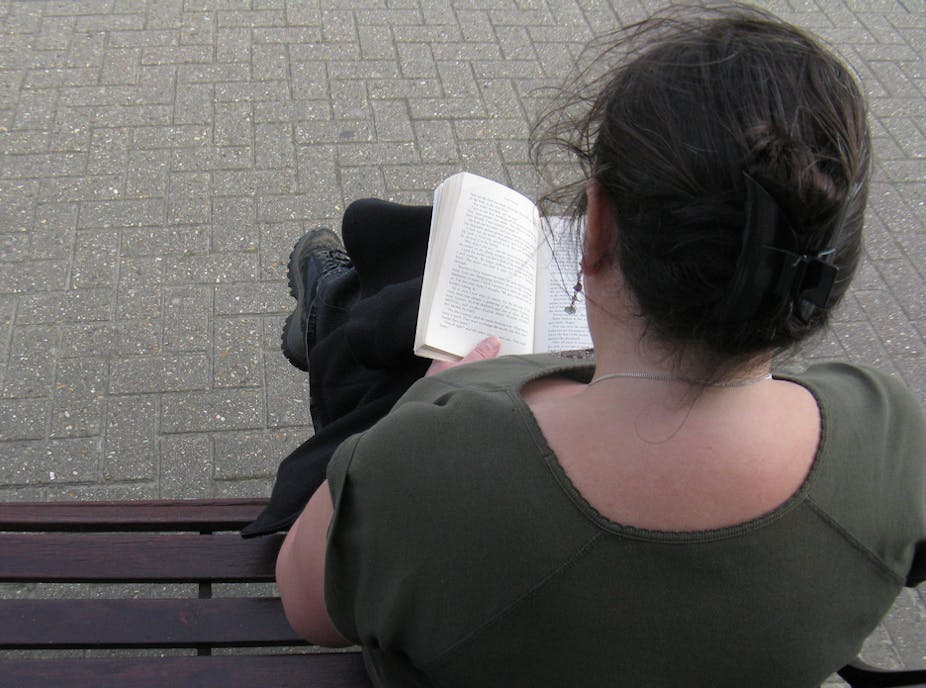Adults in England have a very unequal spread of basic skills – some are highly skilled while others do poorly at literacy and numeracy tests. It’s likely that entrenched inequality in our education system has much to do with the equality gap.
The recent publication of the OECD’s Survey of Adult Skills generated a lot of commentary about the relatively poor level of adult skills in England. In both literacy and numeracy tests, young people scored no better than previous generations and worse than their peers in all other countries except Italy and Spain.
There was less discussion about how skills are spread around, but this is just as important.
England does relatively badly on equality of opportunity, in terms of the degree to which social background influences skills attainment. The only country where parents’ level of education has a greater effect on children’s skills attainment in literacy and numeracy is the Slovak Republic.

Young people with graduate parents are likely to score 67 points higher in numeracy and 58 points higher in literacy than those whose parents only have GCSE level qualifications. English-speaking, “liberal” countries generally show less equality of opportunity than other countries, and England and the USA the least.


There are large gaps in skills of 16-65 year olds, particularly in numeracy. Scores in the study are measured out of 500 but the actual range of scores is much lower. In England, the average score in numeracy of those in the lowest-scoring 20% is 153 points below the average score of those in the highest scoring 20%. The gap in literacy scores is somewhat smaller at 134.3 points.
Only two countries, France and the USA, are more unequal in numeracy and in literacy only Finland and Canada are more unequal.
Young people come off worst
But the situation for younger age groups is even more alarming. For 25-29 year olds there are no countries with more unequal skills distributions in either numeracy or literacy. England is also the only country where skills are as unequal amongst the younger age groups as the older ones.
Why are adult skills in England so much more unequal than in most other countries? We can rule out some explanations. Since the skills levels of younger age groups are much the same as for older age groups, differences between age groups play no part.
Inward migration seems to contribute a small amount to adult skills inequality in England, but no more than in most countries and rather less than in some. Neither does adult learning appear to play a greater role in exacerbating the skills inequalities amongst adults in England than in other countries.
There is one probable explanation and that has to do with initial education. Skills and educational qualifications are very closely related. In England, each of the different age groups has a very high level of inequality in education qualifications compared with other countries. Since most qualifications are achieved before the age of 25, this implies that the initial education system has been producing very unequal outcomes going back to the 1950s.
Our research concludes that the primary cause of adult skills inequality in England is the exceptionally unequal skills outcomes of the initial education system sustained over a long period, fuelled and supplemented by an especially strong influence from social background.

